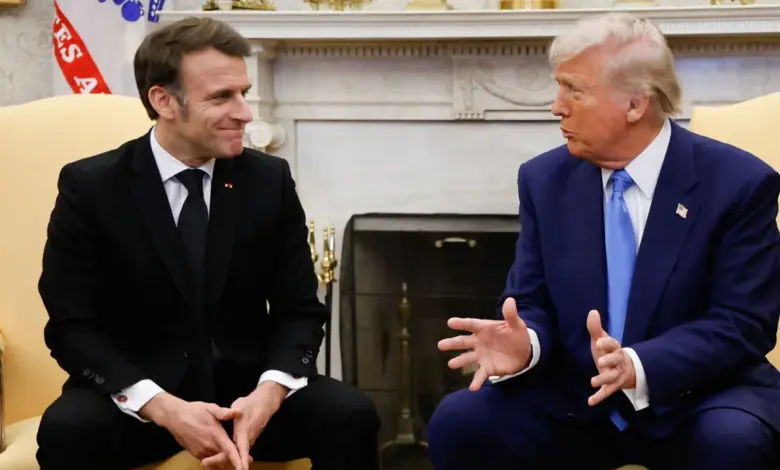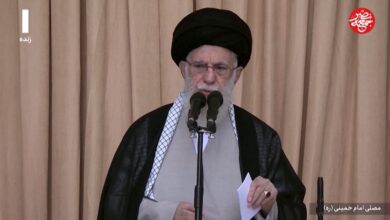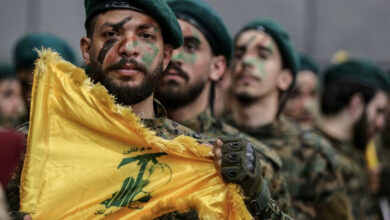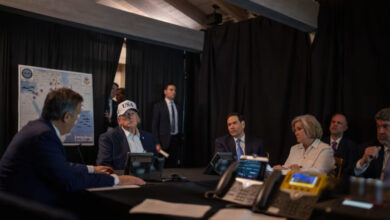
This is how much Donald Trump has already transformed America’s global role.
Loath to condemn Kremlin aggression on Monday’s third anniversary of the brutal onslaught on Ukraine, the United States chose new voting buddies at the United Nations, including longtime enemies Russia and North Korea.
The drama at UN headquarters better reflected the gaping new transatlantic rift than the scenes in the White House as Trump and his French counterpart Emmanuel Macron clasped hands and ladled out mutual flattery.
This was not the only jarring juxtaposition on a day of diplomatic drama stretching from Kyiv to Moscow, from London to Washington and New York as global powers jockey for position in the global great game suddenly shaken up by Trump.
Say one thing for the American president — his craving for a one-on-one summit with his friend, Russian President Vladimir Putin, has unleashed a torrent of crisis diplomacy aimed at ending the war in Ukraine that was frozen for years.
But his mind-boggling turn toward Putin and away from Ukraine has scrambled old alliances and set off a race by America’s allies and adversaries to shape the peace deal he plans to conclude with the Russian leader.
Europe heaps pressure on Russia while the US does the same on Ukraine
On the anniversary of the invasion, world leaders took the train into wartime Kyiv to stand with President Volodymyr Zelensky — fresh from being lambasted by Trump. They included Canadian Prime Minister Justin Trudeau, who could commiserate with his host after Trump insulted him again Monday as the “Governor” of the supposed 51st state.
In London, British Prime Minister Keir Starmer, who will follow Macron’s bid to redirect Trump with his own White House trip on Thursday, said the G7 should take on “more risk” to hurt Russia as he announced a new raft of sanctions. But Trump wants Russia back in the rich nations’ club.
In Moscow, Putin condemned European leaders whom he suggested were too close to Ukraine to help broker peace while dispensing the kind of praise that Trump laps up when he said the president was free from such “shackles.”
Behind the diplomatic theater is a common theme: Leaders know that Trump is desperate for a “deal” to bolster his reputation and worry that in his quest for political adulation at home and an elusive Nobel peace prize, the US president isn’t particular about the details.
“I mean, that’s what I do. I do deals. My whole life is deals. That’s all I know, is deals. And I know when somebody wants to make it and when somebody doesn’t,” Trump said at a news conference with Macron on Monday.
Trump’s subordinates endlessly lionize him for almost super-human prowess at the bargaining table. “He’s the dealmaker in chief. He’s the commander in chief. And it’s only because of his strength that we’re even in this position,” national security adviser Mike Waltz said on Fox Business on Sunday, for example.
The best thing that can be said for the president’s unorthodox approach is that he has offered the possibility of ending a war that is grinding through the lives of young Ukrainian and Russian soldiers and has killed thousands of civilians.
And if he succeeds in inking an agreement with Ukraine to exploit its rare earth metals and minerals — a big if, considering Kyiv refused his previous pillaging demands — he will create a future economic lifeline for the country as it rebuilds and forge a reason for his administration and others to stay engaged.
And no one can say the president isn’t acting on the “America First” promises that convinced many voters to give him a second term.
His administration’s brutalist new approach to Europe has got results. France and Britain are offering to send a “reassurance” force to Ukraine after a peace deal and NATO states look like they will at last start significantly increasing defense spending.
But Ukraine — and for that matter Gaza, which Trump wants to turn into the “Riviera of the Middle East” after sending the Palestinians somewhere else — isn’t a real estate deal.
Peacemaking involves human lives, history’s animosities and complex calculations, including the existential question of whether Ukraine will survive and what a Putin “win” would mean for future European security. There’s no comparison to the branding deals and acquisitions that Trump swung for casinos, golf clubs and skyscrapers during his checkered career as a property developer.
And European concerns were only exacerbated in Monday’s joint news conference with Macron when Trump displayed his apparently limited interest and understanding of how a peace deal without security guarantees could reward Putin’s land grab and lay the groundwork for future wars. The president instead incessantly complained that the invasion would never have happened if he had been in office.
Macron turns on the charm
Macron used his extensive repertoire of compliments, tactile body language and handshakes that never seemed to end on “Dear Donald.” And he even got away with correcting him in the Oval Office over his false claims that Washington had almost doubled Europe’s support for Ukraine.
After visiting the White House, Macron sought out another venue to get to Trump — Fox News, telling Bret Baier, “I think the arrival of President Trump is a game changer. And I think he has the deterrence capacity of the US to re-engage with Russia … my concern is that we have to go fast. But we need something first, a truce, which could be assessed, and checked, and full-fledged negotiation.”
Earlier, after turning to Trump at the White House, Macron said: “We want peace; he wants peace. We want peace swiftly, but we don’t want an agreement that is weak.” The French and the British want security guarantees for Ukraine that they argue can only be reinforced by an American “backstop” if Russia is to be prevented from restarting the war.
“The fact that there are Europeans that are ready to engage to provide for these security guarantees and now there’s a clear American message that the US, as an ally, is ready to provide that solidarity for that approach — that’s a turning point,” Macron said. “And that is one of the great areas of progress that we’ve made during this trip.”
But how far “solidarity” goes is unclear since Trump refused to publicly offer US help. Perhaps he doesn’t want to anger Putin before their eventual summit. Or maybe he worries about a possible clash between US and Russian forces if American troops were part of those security guarantees.
Despite Macron’s claims of progress, Trump still views the war through a different lens – as events at the UN showed.
The US delegation voted with some of its most sworn adversaries, including regimes in Moscow and Pyongyang, against a General Assembly resolution condemning Russian aggression in Ukraine and calling for the return of Kyiv’s territories.
Later, Russia and the US voted together again on a Security Council resolution drafted by Washington that did not highlight Moscow’s aggression but that called for a swift end to the war and a lasting peace.
The US resolution passed 10-0 in the Security Council. But several top US allies, including permanent five members France and Britain, abstained. Both countries offered amendments to Washington’s resolution seeking to insert references to the United Nations Charter and Ukraine’s territorial integrity, a European diplomat said. But Russia vetoed them both. “Russia continues to trample on international law and the United Nations Charter by pursuing its aggression against Ukraine,” the diplomat said.
This estrangement between Washington and allies it has protected since World War II was laid bare in the Oval Office when Trump was asked whether Putin, who has killed and imprisoned his opponents, was a “dictator.”
“I don’t use those words lightly,” Trump said days after applying the title to democratically elected Zelensky.
This drew a crooked Gallic grin and a sideways glance from Macron. But it also summed up his enormous task.




